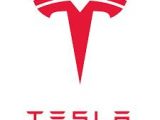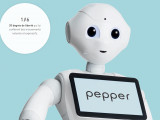
Tesla to use Dojo supercomputer to support autonomous driving
2. Juli 2021Tesla to use Dojo supercomputer to support autonomous driving
New York, 7/2/2021
Tesla has unveiled a new supercomputer that will help replace radar and lidar sensors in self-driving cars with high-quality optical cameras. Tesla’s new supercomputer is a prototype version of „Dojo,“ a neural network training computer that Tesla has been developing since 2019 to support the transition to all-visual autonomous driving.
Unlike its competitors, Tesla is pursuing purely visual (without lidar or radar) autonomous driving. Tesla is relying more on computer vision technologies supported by AI and cameras, as well as its own chip with a neural network accelerator.
During this month’s Conference on Computer Vision and Pattern Recognition (CVPR), Tesla’s senior director of AI Andrej Karpathy shared new details about the supercomputer, which he called the fifth most powerful in the world.
Karpathy said the image processing system Tesla has built over the past few years „is so incredibly good that it dwarfs other sensors.“
Tesla uses the neural network to label 4D data that comes from its vehicles‘ camera systems. The data can be used to train autonomous software to further improve the partially self-driving experience.
The new supercomputer has 10 petabytes of „hot tier“ NVME memory and runs at 1.6 terabytes per second. The unveiling marks Tesla’s third supercomputer cluster ahead of the release of Dojo, which is expected sometime this year.
In April 2019, Musk called lidar „fool’s errand“ because they are unnecessary and expensive.
In May, Bloomberg reported that Tesla has a contract to test Luminar lidar sensors. The article sparked debate over whether the automaker was straying from its vision of a camera-based, fully self-driving system. However, analysts believe Tesla is primarily using the lidar devices to test the performance of its camera-based full self-driving system.
Tesla’s Model 3 and Model Y are already shipping in North America without radar sensors. A spokesperson for the company explained that these are the first vehicles to rely on camera vision and neural network processing.
Elon Musk is considering hosting a Tesla AI Day in about a month, where he could showcase the company’s AI advances and recruit new talent. The CEO has not yet announced a date, although reports suggest it could be in late July.
Reports have speculated that Musk could unveil developments related to Autopilot, the beta version of fully autonomous driving and Level 5 autonomy.


